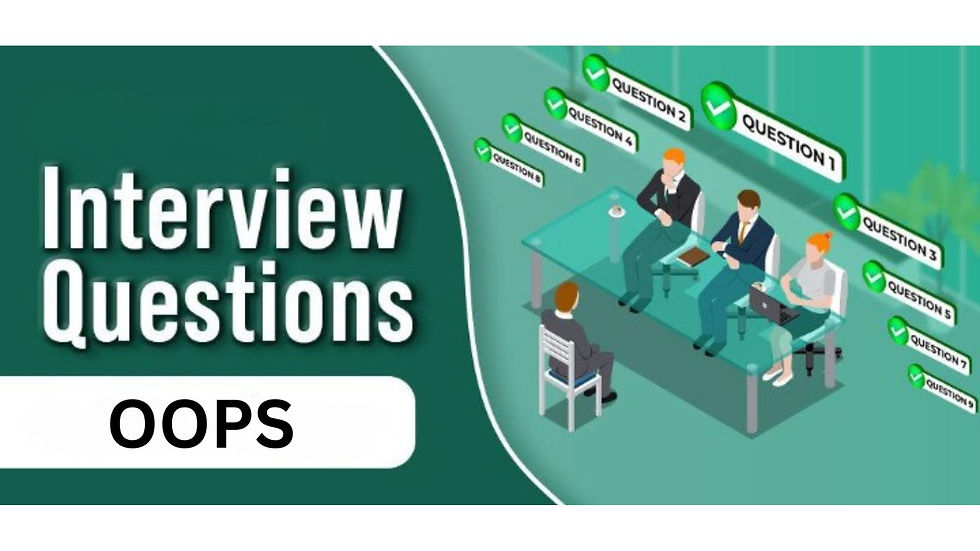Mastering Object-Oriented Programming Interviews: Strategies and Problem-Solving
- Divyansh WsCube
- Oct 25, 2023
- 2 min read

Introduction
Object-Oriented Programming (OOP) is not just a programming paradigm; it's a way of designing and structuring code. As such, OOP concepts are frequently assessed in technical interviews, especially for software development roles. To excel in OOP interviews, you need more than theoretical knowledge. You need practical problem-solving skills. In this blog, we'll explore the best strategies for preparing for OOPS interview questions and answers and how to practice problem-solving with OOP concepts.
1. Understand the Fundamentals Thoroughly
Before diving into problem-solving, ensure you have a rock-solid understanding of OOP principles. Be able to explain encapsulation, inheritance, polymorphism, and abstraction with real-world examples. Understand SOLID principles and design patterns, as these often come up in interviews.
2. Code, Code, Code
The most effective way to learn and prepare for OOP interviews is to write code. Start with simple OOP exercises and gradually work your way up to more complex challenges.
Create classes and objects.
Implement inheritance hierarchies.
Practice method overloading and overriding.
Apply polymorphism.
Use abstract classes and interfaces.
Develop your own projects with OOP design.
3. Leverage Coding Platforms
Coding platforms like Leet Code, Hacker Rank, and Code Signal often offer OOP-specific challenges. They are excellent resources for honing your problem-solving skills and adapting OOP concepts to different scenarios.
4. Study Real-World Scenarios
OOP is not just theoretical; it's widely used in real-world applications. Try to solve practical problems using OOP concepts. For example, create a class hierarchy for a library system, model an online shopping cart, or design a game using OOP principles.
Also Read: What are the top tips and tricks for preparing for Django technical interviews questions?
5. Explore UML Diagrams
Unified Modeling Language (UML) diagrams are invaluable for communicating your design decisions in OOP interviews. Study class diagrams, sequence diagrams, and state diagrams. Be ready to create UML diagrams to explain your thought process.
6. Mock Interviews and Peer Review
Conduct mock interviews with friends or colleagues to simulate the interview experience. This helps you get comfortable with explaining your thought process. Peer review can provide valuable feedback and different perspectives on your solutions.
7. Tackle Open-Ended Problems
In interviews, you may face open-ended questions that require a high-level solution or architecture design. Practice breaking down these problems, identifying classes and their interactions, and creating a rough design before diving into coding.
8. Study Design Patterns
Familiarize yourself with common design patterns like Singleton, Factory, and Observer. Understand when and how to apply them to solve specific problems. Interviewers may ask for explanations or implementations of these patterns.
9. Stay Updated
OOP is not stagnant. New features and practices emerge. Stay updated with the latest developments in OOP. This not only helps you answer questions but also demonstrates your commitment to continuous learning.
10. Review and Reflec
After practicing and solving problems, review your solutions. Identify areas for improvement and think about how you could have approached problems differently. Reflect on your strengths and weaknesses.
Conclusion
Preparing for OOP interviews is not just about memorizing definitions; it's about mastering problem-solving with OOP concepts. Through practice, practical examples, and the application of OOP principles, you can become a confident and effective OOP developer, ready to tackle any interview challenge that comes your way.



Comments